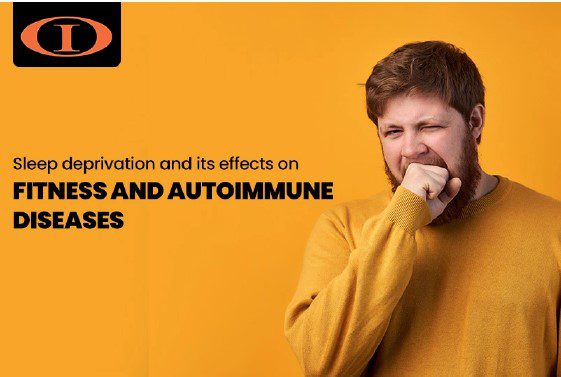Sleep allows the body and brain to replenish and heal, influencing practically every tissue. Deprivation raises the chance of developing diabetes, heart disease, and stroke. Sleep deprivation for an extended period of time can also impair focus and other cognitive processes.
Symptoms of sleep deprivation
- Slow thinking
- Reduced attention span
- Poor memory
- Worsened decision-making
- Loss of energy
- Mood changes including feelings of stress, anxiety, or irritability
Consequences of Sleep Deprivation
- Cardiovascular disease
- Diabetes
- Obesity
- Immunodeficiency
- Hormonal abnormalities
- Chronic Pain
- Mental health disorders
Why is sleep important in fitness?
- Sleep provides recovery time in order to grow strength, mass, and endurance.
- Production of Growth Hormone.
- Help people keep to their workout programs.
- More energy and power during your workout.
- Improve your concentration, attitude, and focus.
How lack of sleep affects fitness
- Not getting enough sleep can actually make exercise feel harder.
- Exhaustion and difficulty working out.
- Treadmill endurance performance deteriorates.
- Physiological reactions such as autonomic nervous system abnormalities.
Sleep deprivation and autoimmune diseases
- Sleep has a major impact on the endocrine, metabolic, and immune pathways.
- Sleep deprivation leads to increased circulating numbers and decreased activity of immune cells.
- Increases levels of circulating proinflammatory markers.
- Sleep Deprivation can increase the risk of infection, as well as chronic inflammatory diseases.
Autoimmune diseases caused by Sleep Deprivation
- Cell senescence
- Unbalanced local/systemic inflammation
- Dysmetabolism
- Immune derangements
- Imbalance of bacterial populations within the gut microbiome
- Cancer
- Neurodegenerative diseases
How Much Sleep Do You Need Every Night?
- Newborns (0 to 3 months): 14 to 17 hours of sleep
- Infants (4 to 11 months): 12 to 15 hours of sleep
- Toddlers (1 to 2 years): 11 to 14 hours of sleep
- Preschoolers (3 to 5 years): 10 to 13 hours of sleep
- School children (6 to 13 years): 9 to 11 hours of sleep
- Teenagers (14 to 17 years): 8 to 10 hours of sleep
- Young People (18 to 25 years): 7 to 9 hours of sleep
- Adults (26 to 64 years): 7 to 9 hours of sleep
- Senior citizens (65 years or older): 7 to 8 hours of sleep
Role of exercise in improving sleep:
- Exercising has a chemical effect on the brain.
- Physical activity creates more adenosine in the brain, and adenosine makes us feel sleepy.
- The harder we work out, the more we are driven to sleep.
- Maintaining your circadian rhythm, or internal clock, through exercise is another benefit.
- The activity enables your body to understand the sleep cycle.
- Morning exercise prepares your body for better night time sleep.
- Sleep deprivation and its effects on fitness
Exercises that are best for sleep
- Aerobics
- Brisk walking
- Water aerobics
- Semi-hilly bike rides
2. Vigorous-intensity Aerobics
- Running
- Jogging
- Lap-swimming
- Intense bike rides
3. Resistance Exercise
- Lifting weights
- Working out using resistance bands
- Push-ups, sit-ups, and other resistance exercises
4. Yoga
Contact Us: info@ironorrfitness.com


